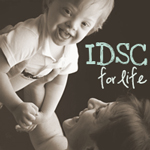It is already known that B vitamins (especially B12) help people with Down syndrome, due to the overexpression of the SAM cycle by the CBS gene. This gene creates a "folate trap" and the body is not able to use the necessary folate that it needs. B12 helps with that, which in turn will help with the brain (because both low & high homocysteine affect the brain) and also certain other amino acid levels (such as glutathione).
LONDON (Reuters) - Daily tablets of large doses of B vitamins can halve the rate of brain shrinkage in elderly people with memory problems and may slow their progression toward dementia, data from a British trial showed on Wednesday,
Scientists from Oxford University said their two-year clinical trial was the largest to date into the effect of B vitamins on so-called "mild cognitive impairment" -- a major risk factor for Alzheimer's disease and other forms of dementia.
Experts commenting on the findings said they were important and called for larger, longer full-scale clinical trials to see if the safety and effectiveness of B vitamins in the prevention of neurodegenerative conditions could be confirmed.
"This is a very dramatic and striking result. It's much more than we could have predicted," said David Smith of Oxford's department of pharmacology, who co-led the trial.
"It is our hope that this simple and safe treatment will delay development of Alzheimer's in many people who suffer from mild memory problems."
Mild cognitive impairment (MCI) affects around 16 percent of people aged over 70 worldwide and is characterized by slight problems with memory loss, language or other mental functions.
MCI does not usually interfere with daily life, but around 50 percent of people diagnosed with it go on to develop the far more severe Alzheimer's disease within five years. Alzheimer's is a mind-wasting disease for which there are few treatments and no cure, and which affects 26 million people around the world.
Smith and colleagues conducted a two-year trial with 168 volunteers with MCI who were given either a vitamin pill containing very high doses of folic acid, vitamin B6 and vitamin B12, or a placebo dummy pill.
These B vitamins are known to control levels of an amino acid called homocysteine in the blood, and high blood levels of homocysteine are linked to an increased risk of developing Alzheimer's disease.
Helga Refsum, who also worked on the trial, stressed that vitamins were given in extremely high doses.
"This is a drug, not a vitamin intervention," she said.
The pills, called "TrioBe Plus" contained around 300 times the recommended daily intake of B12, four times daily advised folate levels and 15 times the recommended amount of B6.
Brain scans were taken at the beginning and the end of the trial to monitor the rate of brain shrinkage, or atrophy.
The results, published in the Public Library of Science (PLoS) One journal, showed that on average the brains of those taking the vitamin treatment shrank at a rate of 0.76 percent a year, while those taking the dummy pill had an average brain shrinkage of 1.08 percent.
People who had the highest levels of homocysteine at the start of the trial benefited the most from the treatment, with their brains shrinking at half the rate of those on the placebo.
Although the trial was not designed to measure cognitive ability, the researchers found those people who had lowest rates of shrinkage had the highest scores in mental tests.
Commenting on the study, Paul Matthews, a professor of clinical neurology at Imperial College London said that although the vitamins used are generally safe and inexpensive, the study "should not drive an immediate change in clinical practice"
"Instead, it sets out important questions for further study and gives new confidence that effective treatments modifying the course of some dementias may be in sight," he said.
























4 comments:
I find that in real life... these experimental information are not useful becuase the interventions are not ready for the public and my son's Dr looks at my like I'm crazy when I ask about it. I am curious to know if this would be the same result in someone who has DS and Autism. Dually Diagnosed individuals are excluded from most reasearch.
Thank you for sharing this!
@ Just Me: Yes, I hear ya that the dual diagnosis gets left out of a lot of research and it's unfortunate. There are a lot of kiddos who have the dual diagnosis and I think it's forgotten about sometimes. But, it's definitely important.
I know there are a lot of families of Dual Dx kids who are using vitamins with good results. I hope to do a post on Dual Dx this month ;).
Thank you for reminding us that mild cognitive impairment is not always mild!
I am looking forward to the dual diagnostic posts too.
Sounds like Vitamin B12 was found to be effective in this population.
Post a Comment